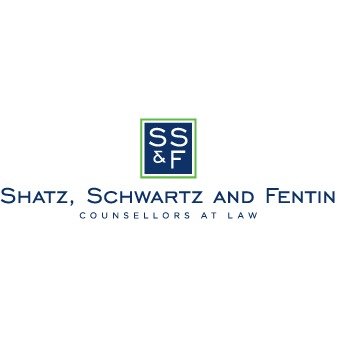Best Inheritance Law Lawyers in Massachusetts
Share your needs with us, get contacted by law firms.
Free. Takes 2 min.
Or refine your search by selecting a city:
List of the best lawyers in Massachusetts, United States
About Inheritance Law in Massachusetts, United States
Massachusetts inheritance law governs how a deceased person’s property is distributed. It covers will validity, intestate succession, probate administration, and related disputes. The Probate and Family Court handles the formal process of validating a will, appointing a personal representative, and supervising distributions to heirs and beneficiaries. Understanding when probate is required, and how debts and taxes are handled, can prevent costly delays or conflicts.
Key concepts in Massachusetts include the role of a personal representative, the distinction between will-based distributions and intestate succession, and rules that apply to real estate, bank accounts, and life insurance with named beneficiaries. The law also addresses guardianship for minors, digital assets, and how homestead protections interact with estate planning. Practical planning often involves coordinating wills, trusts, and beneficiary designations to minimize probate complications.
Sources you can consult for official guidance: the Massachusetts Probate and Family Court Department provides layperson information on probate processes and estate administration. For statutory foundations, see the Uniform Probate Code provisions adopted by Massachusetts and the state homestead protections discussed in Massachusetts General Laws.
According to Massachusetts court guidance, the probate process can vary from several months to over a year depending on complexity and dispute resolution.
Official resources and statutes provide the framework for how estates are opened, administered, and closed in Massachusetts. You should consider speaking with a Massachusetts solicitor or attorney who specializes in estate planning and probate to tailor guidance to your situation.
For reference and further reading, see the official Massachusetts Probate and Family Court Department and the Uniform Probate Code resources cited below.
Why You May Need a Lawyer
Here are concrete, Massachusetts-specific scenarios where legal counsel is essential. Each example reflects real-world considerations faced by families in the Commonwealth.
- You suspect a will is invalid due to lack of capacity or undue influence by a caregiver and need a formal challenge or defense strategy in the Probate Court.
- You are named as executor or administrator and must file a petition, inventory the estate, notify creditors, and coordinate tax filings with the court and the Department of Revenue.
- A surviving spouse or child seeks to understand rights under intestate succession or elective share rules when there is no will, or when the will leaves minimal assets to them.
- Real property is involved, and you need guidance on how a homestead exemption or joint ownership affects distribution and potential creditor claims.
- You must deal with Massachusetts estate tax obligations and need help coordinating federal and state tax returns with the probate process.
- Digital assets, retirement accounts, and life insurance benefits require careful beneficiary designation review to prevent unintended transfers or delays.
Having a qualified lawyer can reduce delays, ensure proper notice to creditors, and help you protect your rights and those of your loved ones during a stressful time. A Massachusetts solicitor can also help you interpret complex provisions in wills or trusts and negotiate settlements when disputes arise.
Local Laws Overview
Massachusetts relies on the Uniform Probate Code implemented through state statutes, and specific protections for real property, such as the Homestead Act, to govern inheritance matters. These laws shape who can receive assets, how debts are handled, and how property is transferred after death.
The Uniform Probate Code in Massachusetts is codified as part of the Massachusetts General Laws and provides the framework for wills, intestate succession, guardianships, and the administration of estates. It affects how executors and administrators are appointed and how inventories, notices, and distributions are accomplished in the Probate Court.
The Homestead Act offers important protections for a primary residence when an estate is settled, limiting the amount of equity that can be forced to satisfy debts. This protection can influence decisions about whether to sell or retain real estate as distributions are planned.
For official references you can consult the following resources:
- Uniform Probate Code - Uniform framework adopted by Massachusetts for wills and estate administration. See official citations at Uniform Probate Code, Massachusetts General Laws ch. 190B.
- Homestead Act - Protections for the primary residence during estate settlement. See Massachusetts Homestead Act, ch. 188.
- Massachusetts Probate Court information - Official guidance on probate and estate administration in the Commonwealth. See Probate and Family Court Department.
Additional government and official resources provide practical steps and timelines for probate, estate administration, and related taxes. For federal perspectives on estate tax, see the Internal Revenue Service resources listed below.
Frequently Asked Questions
What is probate and why does Massachusetts require it?
Probate validates a will and authorizes the transfer of assets. In Massachusetts, probate ensures debts are paid and heirs receive lawful distributions under court supervision.
How do I start probate in Massachusetts for a will?
File a petition for probate with the Probate Court in the county where the decedent resided. You will appoint a personal representative and prepare an inventory of assets.
When must I file the estate tax return in Massachusetts?
State and federal tax filings may be required after death, depending on asset value and classification. A Massachusetts solicitor can help determine timing and form requirements.
Where can I file probate documents in Massachusetts?
Documents are filed with the Probate and Family Court in the relevant county. The court provides electronic and in-person filing options in many cases.
Why do I need a lawyer for probate in Massachusetts?
A lawyer helps ensure proper notice to heirs and creditors, accurate inventories, and compliance with state tax and reporting requirements. They also aid in dispute resolution and court filings.
Can I avoid probate for small estates in Massachusetts?
Some assets pass outside probate through beneficiary designations or joint ownership, but many assets still require probate. A lawyer can review titles, pay debt, and transfer assets efficiently.
Should I hire a lawyer if there is a will contest or dispute?
Yes. A contested will or trust requires careful legal strategy, expert evidence, and proper court procedures to protect rights and seek a fair outcome.
Do I qualify to be an executor in Massachusetts?
Qualifications include being of sound mind, older than 18, and not to be subject to certain disqualifications. A court may appoint a suitable personal representative if needed.
Is an electronic will recognized in Massachusetts?
Massachusetts recognizes formal will execution requirements; electronic wills are generally not automatically valid unless they meet specific statutory conditions. Consult a solicitor for current rules.
How long does probate take in Massachusetts on average?
Typical timelines range from 6 to 12 months for straightforward estates, to 12 to 24 months or longer for complex matters or contested probate. Court backlogs may extend this period.
What is the difference between an executor and an administrator?
An executor administers a will, while an administrator handles estate matters when there is no valid will. Both roles require court appointments and fiduciary duties.
Do I need to hire a Massachusetts probate lawyer if the estate is simple?
A lawyer can still help avoid missing deadlines, ensure tax compliance, and clarify rights with heirs. Even simple estates benefit from professional planning and filing accuracy.
Additional Resources
- Massachusetts Probate and Family Court Department - Official state guidance on probate proceedings, estates, and related matters. Provides court forms, calendars, and self-help resources. https://www.mass.gov/orgs/probate-and-family-court-department
- Massachusetts Department of Revenue - State guidance on estate taxes, filing requirements, and related tax obligations. https://www.mass.gov/orgs/massachusetts-department-of-revenue
- Internal Revenue Service (IRS) - Estate Tax - Federal guidance on estate taxes, forms, and deadlines that apply to Massachusetts residents with federal obligations. https://www.irs.gov/businesses/small-businesses-self-employed/estate-tax
Next Steps
- Gather essential documents - Locate the will, any trusts, deeds, life insurance policies with named beneficiaries, recent tax returns, and debt records. Allow 1-2 weeks to assemble materials.
- Determine probate necessity - Assess whether assets pass through probate or can transfer outside probate via survivorship or beneficiary designations. Plan 1-2 weeks for initial assessment.
- Identify a Massachusetts probate attorney - Look for a solicitor with proven experience in MA probate and estate planning. Schedule 2-3 consultations within 2-4 weeks.
- Choose a personal representative - Decide who will file the petition and manage the estate, or request the court to appoint one if needed. Expect a 1-2 week decision window after consultations.
- File with the Probate Court - Submit the petition for probate or administration, inventory assets, and issue notices to creditors and heirs. Allow 4-8 weeks for initial court action, depending on backlog.
- Inventory, debts, and taxes - Prepare a detailed inventory, pay valid debts, and coordinate state and federal tax filings. This typically occurs over 3-6 months but can extend with complexity.
- Distribute assets and close the estate - Finalize distributions under the will or intestate law, file final accounting, and seek discharge from the court. Plan for 6-12 months after filing, or longer for disputes.
Lawzana helps you find the best lawyers and law firms in Massachusetts through a curated and pre-screened list of qualified legal professionals. Our platform offers rankings and detailed profiles of attorneys and law firms, allowing you to compare based on practice areas, including Inheritance Law, experience, and client feedback.
Each profile includes a description of the firm's areas of practice, client reviews, team members and partners, year of establishment, spoken languages, office locations, contact information, social media presence, and any published articles or resources. Most firms on our platform speak English and are experienced in both local and international legal matters.
Get a quote from top-rated law firms in Massachusetts, United States — quickly, securely, and without unnecessary hassle.
Disclaimer:
The information provided on this page is for general informational purposes only and does not constitute legal advice. While we strive to ensure the accuracy and relevance of the content, legal information may change over time, and interpretations of the law can vary. You should always consult with a qualified legal professional for advice specific to your situation.
We disclaim all liability for actions taken or not taken based on the content of this page. If you believe any information is incorrect or outdated, please contact us, and we will review and update it where appropriate.
Browse inheritance law law firms by city in Massachusetts
Refine your search by selecting a city.











